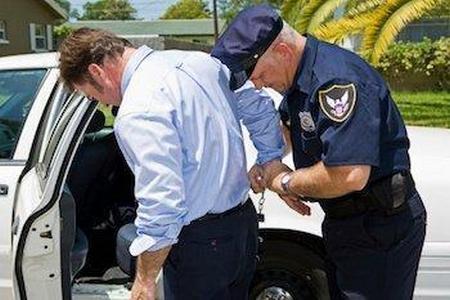Miranda Rights: What They Mean to You
Any television program involving crime will undoubtedly include a scene in which, upon apprehension of a suspect, law enforcement will begin to recite the familiar verse, “You have the right to remain silent. Anything you say can and will be held against you in a court of law…” Many viewers can likely repeat the Miranda rights from memory, but may not be aware of their legal significance.
 The Fifth Amendment of the U.S. Constitution provides protection against due process violations for defendants charged in a criminal matter. This includes the right to protection against self-incrimination. In Miranda, the U.S. Supreme Court extended the protection against self-incrimination to include statements, including confessions obtained outside the courtroom, provided certain circumstances exist. According to the Court in Miranda, officers need to apprise a suspect of his or her rights before custodial interrogation occurs in order for any statements made by the suspect to be admissible as evidence in a future court proceeding. An officer may not interrogate a suspect until after warnings have been given and the suspect knowingly, intelligently, and voluntarily waives those rights, usually in a signed writing.
The Fifth Amendment of the U.S. Constitution provides protection against due process violations for defendants charged in a criminal matter. This includes the right to protection against self-incrimination. In Miranda, the U.S. Supreme Court extended the protection against self-incrimination to include statements, including confessions obtained outside the courtroom, provided certain circumstances exist. According to the Court in Miranda, officers need to apprise a suspect of his or her rights before custodial interrogation occurs in order for any statements made by the suspect to be admissible as evidence in a future court proceeding. An officer may not interrogate a suspect until after warnings have been given and the suspect knowingly, intelligently, and voluntarily waives those rights, usually in a signed writing.
The Miranda rights, which must be recited to the suspect, include the following:
- The right to remain silent;
- Anything the suspect says can and will be used against them in court;
- The right to retain counsel and have them present during questioning by law enforcement;
- The right to have counsel appointed by the court if the suspect cannot afford it.
After these warnings are given, the suspect is free to waive them, or invoke them and request an attorney before any police interrogation takes place. If they are invoked, questioning must cease. If a suspect initially waives his or her rights and then later invokes them, any questioning must be stopped immediately. Further, a written, valid waiver may be withdrawn at any time if the suspect wishes to continue with interrogation without the benefit of counsel. The police have the burden of establishing that a suspect has waived his or her rights.
In order for the Miranda warnings to be required, a suspect must be in custody and interrogated by police. In other words, if police question a suspect who is not in custody, Miranda warnings are not required. Likewise, if a suspect in custody voluntarily makes an incriminating statement without being questioned by law enforcement, that suspect will probably not be able to invoke the protections afforded by Miranda.
In addition to determining whether a criminal defendant was under custodial interrogation, an additional potential Miranda violation occurs when a suspect’s waiver of his or her rights was not made knowingly, voluntarily, or intelligently. An experienced criminal defense attorney can listen to the facts of a particular case and explain the implications of Miranda. If you or someone you know has been charged with a crime in the Chicago, Illinois area, contact us today. We can discuss your case and advise you of your constitutional rights.






















